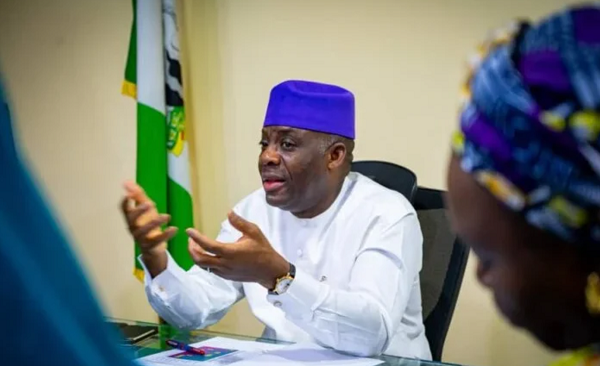Copyright thenationonlineng

Minister of Education, Dr. Maruf Tunji Alausa, has outlined a comprehensive set of reforms being implemented to overhaul the nation’s education system, expand access, and raise quality standards across all levels of learning. In a statement highlighting the ministry’s recent achievements, Alausa said the initiatives form part of President Bola Tinubu’s Renewed Hope Agenda, which seeks to align Nigeria’s education sector with global standards and equip young citizens for a technology-driven economy. Alausa noted that History has been restored as a compulsory subject in the basic education curriculum to promote national identity, unity, and civic responsibility. “As of today, History is fully back as a core subject in schools,” he said. On infrastructure, the minister stated that the Universal Basic Education Commission (UBEC) is rehabilitating schools nationwide through the School-Based Management Committee Improvement Programme. The projects include constructing classrooms, drilling boreholes, providing toilets and desks, and fencing schools, particularly in rural areas. Alausa added that the government has increased annual admission capacity in tertiary institutions from 750,000 to one million students and is harmonising tuition policies through NELFUND to ensure fairness and accessibility. He highlighted the launch of the Nigeria Education Sector Renewal Initiative (NESRI) Roadmap as a key step in transforming the sector. The six-pillar plan focuses on technical and vocational education, school infrastructure, girls’ education, reintegration of out-of-school children, curriculum reform, and digital learning. READ ALSO: Alleged forgery: Anyanwu signed letter before Govs, Saraki, Aliyu, others – PDP Ongoing initiatives, he said, include a nationwide teacher development plan, a curriculum review to reduce subject overload while prioritising entrepreneurship and digital literacy, and a digital data system to track schools, teachers, and students. The minister also cited the expansion of the World Bank-supported Adolescent Girls Initiative for Learning and Empowerment (AGILE) project, which provides conditional cash transfers, improves school facilities, and equips girls with life and digital skills to overcome social and economic barriers. Other key policies include the proposed 12-year uninterrupted basic education structure, plans to phase out the Junior WAEC examination to reduce dropout rates, and the upgrade of technical colleges nationwide. Under the new model, students will receive free tuition and stipends, with 80 per cent of training focused on practicals and 20 per cent on theory. Alausa added that the government has launched the National Education Data System, introduced a new basic education curriculum, intensified teacher training, and expanded the national school feeding programme. He said the school feeding scheme now employs digital registries linked to the National Identity Management Commission (NIMC) to ensure transparency and accountability. The minister described the new student loan scheme as one of the administration’s most significant achievements. The initiative, managed by the Nigerian Education Loan Fund (NELFUND), provides interest-free loans to students in public universities, polytechnics, and colleges of education. It was established under the Students Loans (Access to Higher Education) Act 2023 and amended in 2024 to make the process more inclusive and flexible. According to Alausa, the policy ensures that no qualified Nigerian student is denied higher education due to financial constraints, as the loans cover tuition and other academic expenses.



